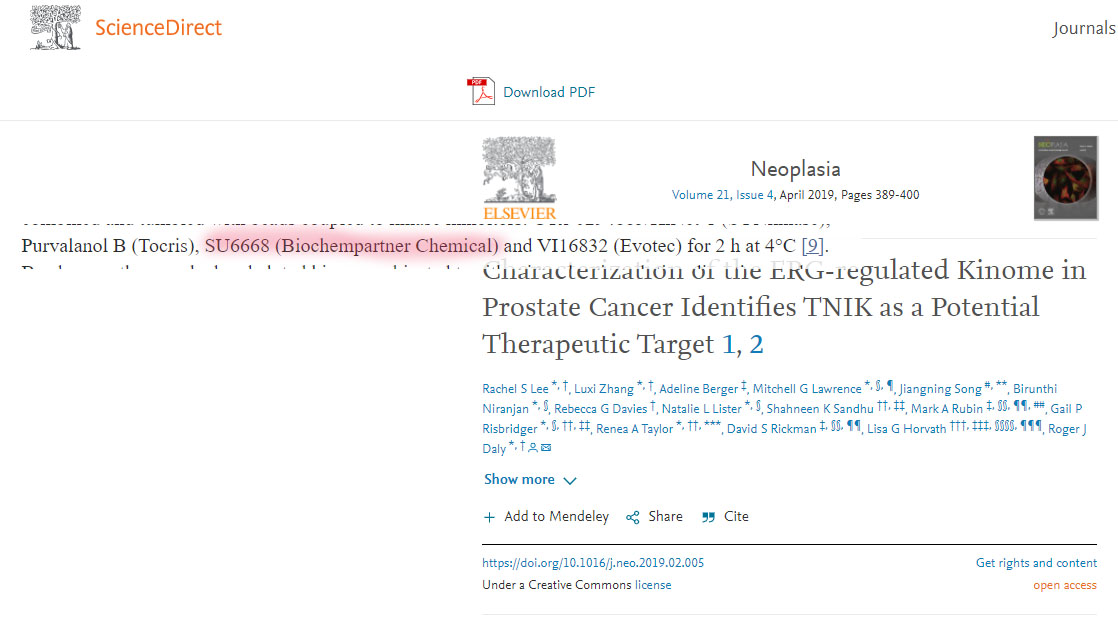Characterization of the ERG-regulated Kinome in Prostate Cancer Identifies TNIK as a Potential Therapeutic Target12

Approximately 50% of prostate cancers harbor the TMPRSS2:ERG fusion, resulting in elevated expression of the ERG transcription factor. Despite the identification of this subclass of prostate cancers, no personalized therapeutic strategies have achieved clinical implementation. Kinases are attractive therapeutic targets as signaling networks are commonly perturbed in cancers. The impact of elevated ERG expression on kinase signaling networks in prostate cancer has not been investigated. Resolution of this issue may identify novel therapeutic approaches for ERG-positive prostate cancers. In this study, we used quantitative mass spectrometry-based kinomic profiling to identify ERG-mediated changes to cellular signaling networks. We identified 76 kinases that were differentially expressed and/or phosphorylated in DU145 cells engineered to express ERG. In particular, the Traf2 and Nck-interacting kinase (TNIK) was markedly upregulated and phosphorylated on multiple sites upon ERG overexpression. Importantly, TNIK has not previously been implicated in prostate cancer. To validate the clinical relevance of these findings, we characterized expression of TNIK and TNIK phosphorylated at serine 764 (pS764) in a localized prostate cancer patient cohort and showed that nuclear enrichment of TNIK (pS764) was significantly positively correlated with ERG expression. Moreover, TNIK protein levels were dependent upon ERG expression in VCaP cells and primary cells established from a prostate cancer patient-derived xenograft. Furthermore, reduction of TNIK expression and activity by silencing TNIK expression or using the TNIK inhibitor NCB-0846 reduced cell viability, colony formation and anchorage independent growth. Therefore, TNIK represents a novel and actionable therapeutic target for ERG-positive prostate cancers that could be exploited to develop new treatments for these patients.




